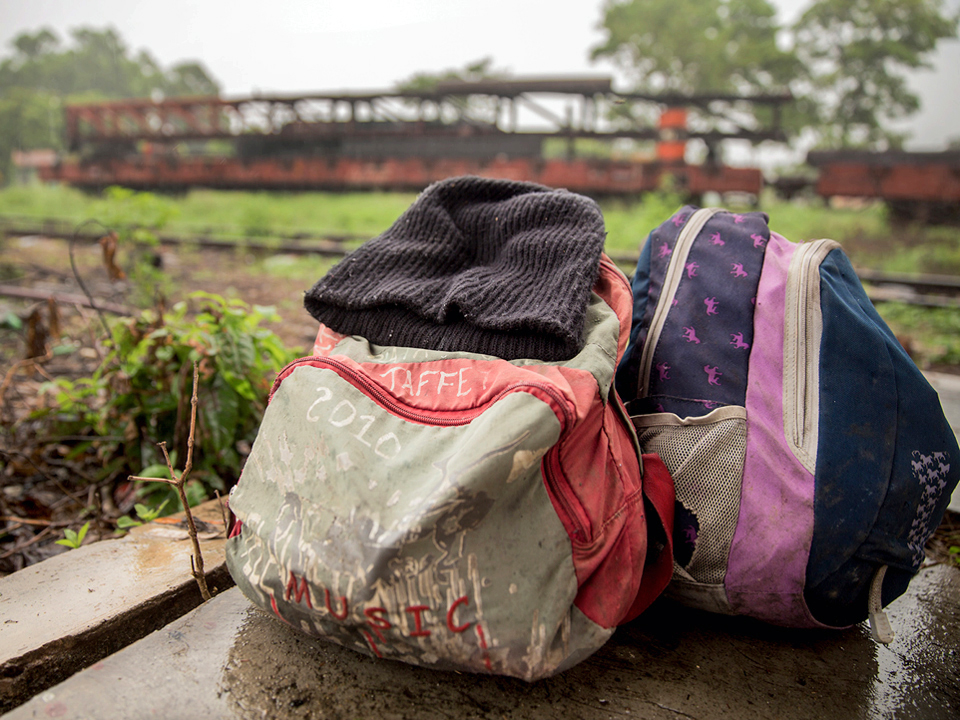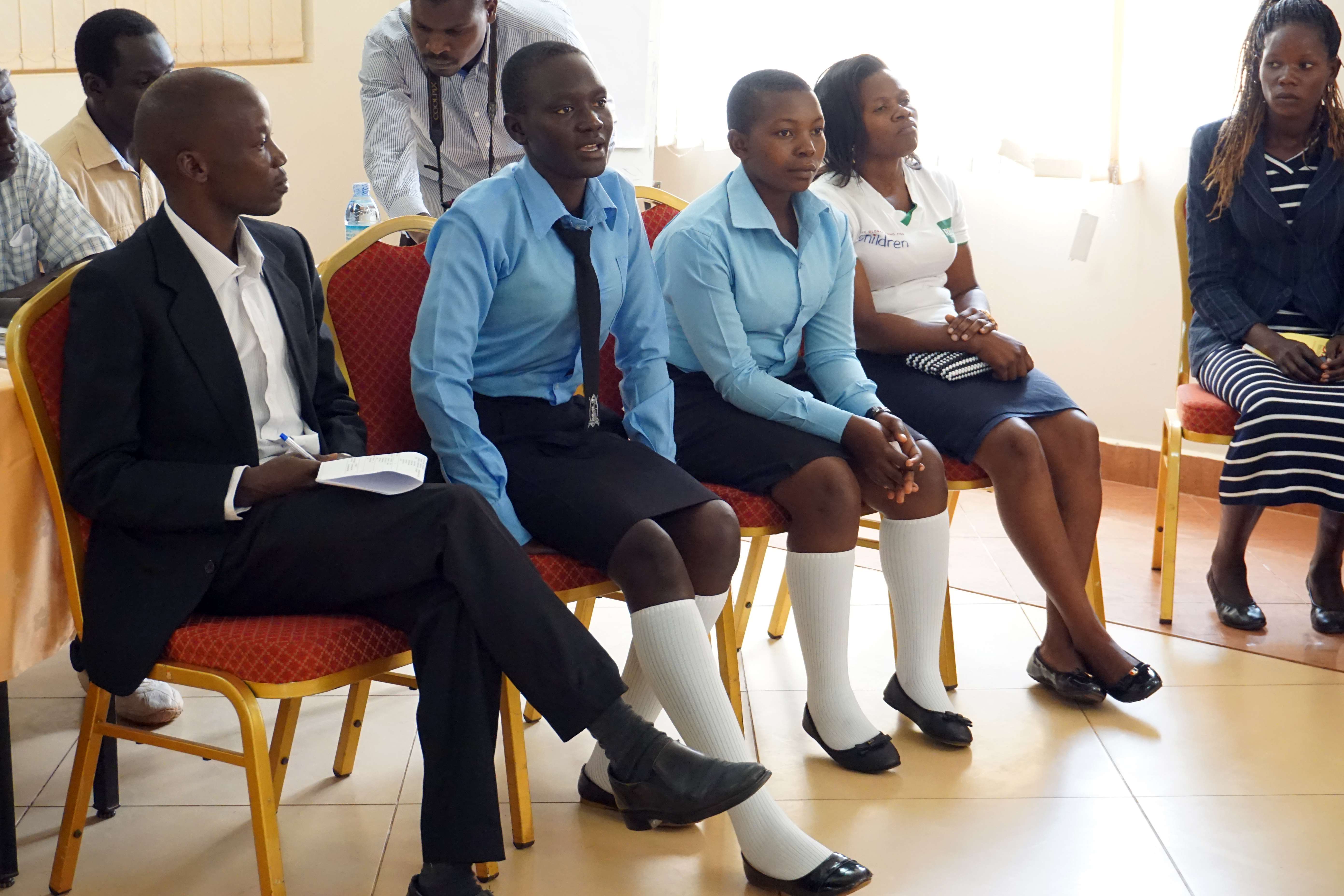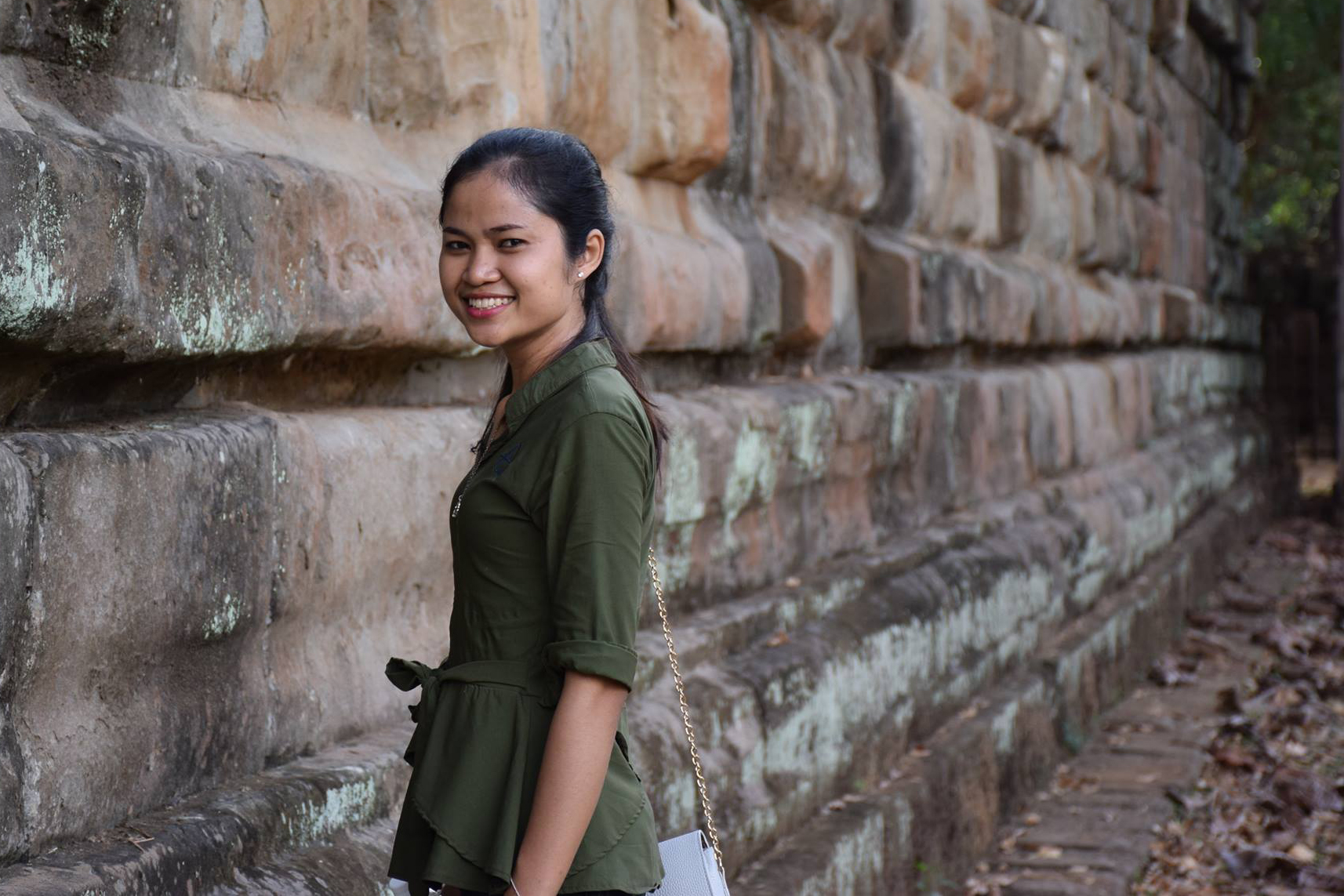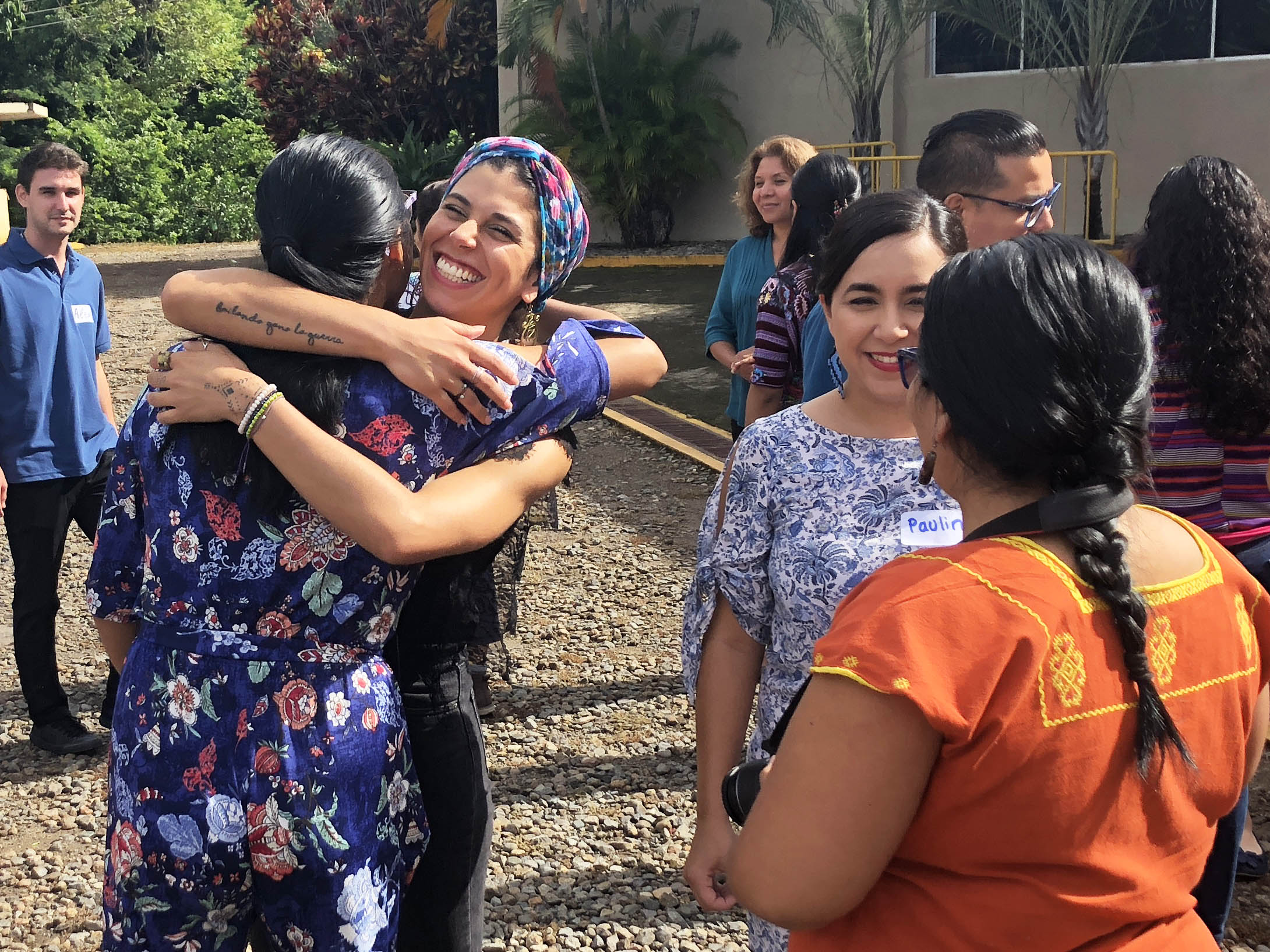What happens when community leaders are given the time, freedom, and encouragement to forge strong connections with peers from other parts of the world? Corey Oser, Vice President for Programs, reflects on GFC’s pursuit of the answer.
When you are the leader of a frontline organization, you rarely find space to step back from your urgent priorities to reflect on how you do your work. Even less frequently do you have the chance to develop meaningful relationships with other leaders from starkly different environments and share mutual insights.
But at GFC, we believe this kind of reflection and networking—bringing like-minded leaders together to learn from each other and see their work in new ways—can be foundational to an organization’s future success.
With the generous support from an anonymous donor, GFC piloted “Step Up,” an initiative to build a learning community among a group of six long-time partners as they navigate their next phase of evolution.
We conducted a competitive selection process to identify groups with a unique approach to bettering the lives of young people and an interest in self-reflection as they wrestle with lofty ideas such as sustainability and scale. We co-created an agenda shaped by common interests anchored by the themes of navigating complexity, adaptive management and transformative leadership.
Then, in the summer of 2017, partners embarked on an 18-month process of interaction and collaboration. They met periodically through video conference to discuss topics of interest and to dive into case studies on their current challenges. The group met in person three times across the year in Mumbai, Nairobi, and Beirut, where convenings included insight on local civil society, site visits to the host partner in each country, and respective themes of leadership, fundraising, and programs.
We are reflecting on the learnings from this pilot initiative as we enter an evaluation phase and plan for the second iteration of the project with a new cohort. This process underscores the importance of co-creation with our partners for any programming meant to support them. Here are some key things we’ve learned so far:
Seeing work-in-action sparks meaningful connections.
The in-person site visits reflected the diversity and complexity of the work and were among the most meaningful parts of the program for the participants. For the final convening in Beirut, the group learned about life for young Syrian refugees and members of Lebanon’s socially excluded Dom community, who live in an urban settlement on the outskirts of the city. There, our partner Tahaddi offers educational and health services to help these young people reintegrate into formal schooling and become active in community life. This was an especially significant site visit for Step Up partners Pop No’j (from Guatemala) and Asylum Protection Center (from Serbia). Both work with migration, and together with Tahaddi they explored the varied approaches to this complex global phenomenon.
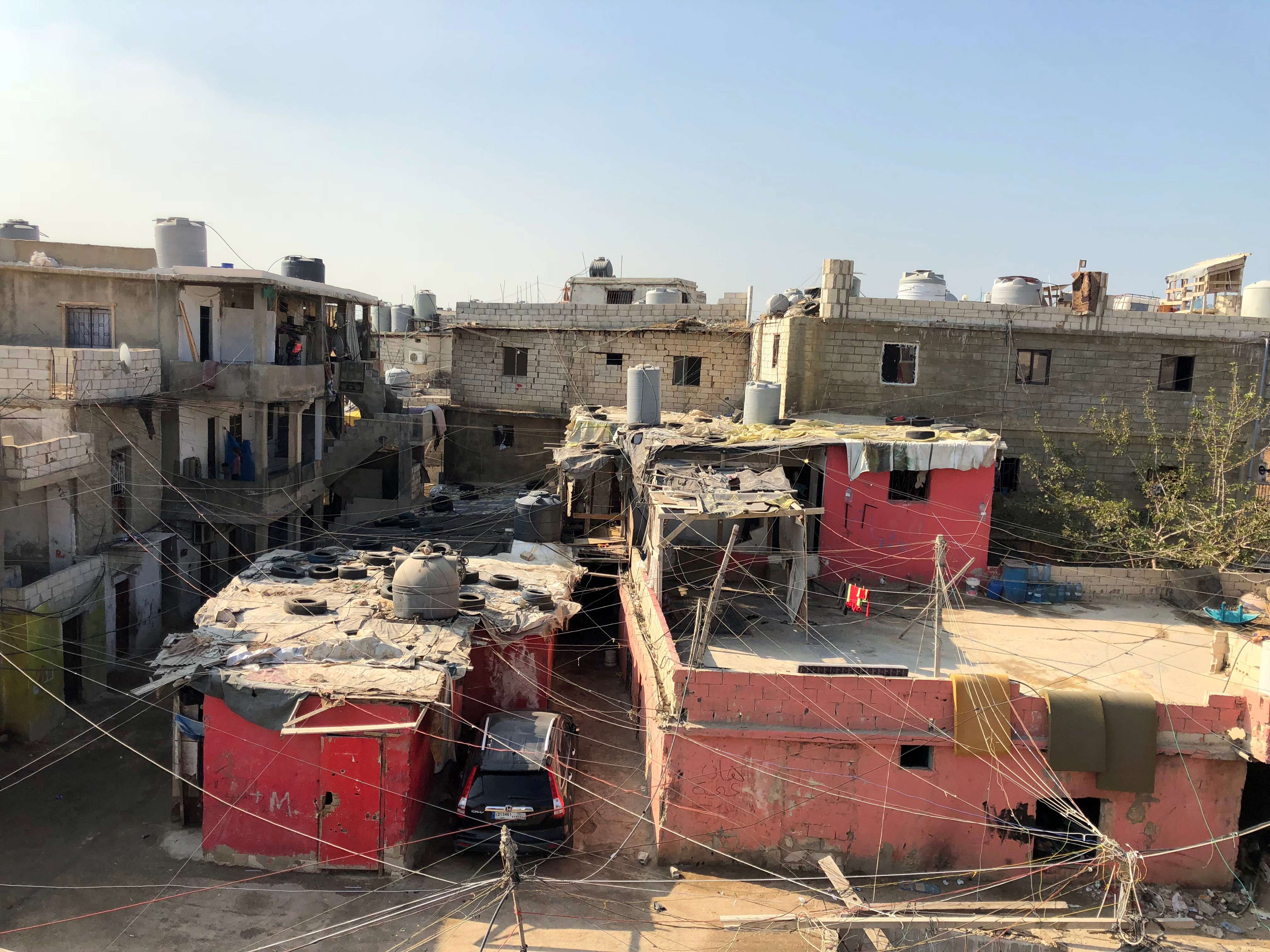
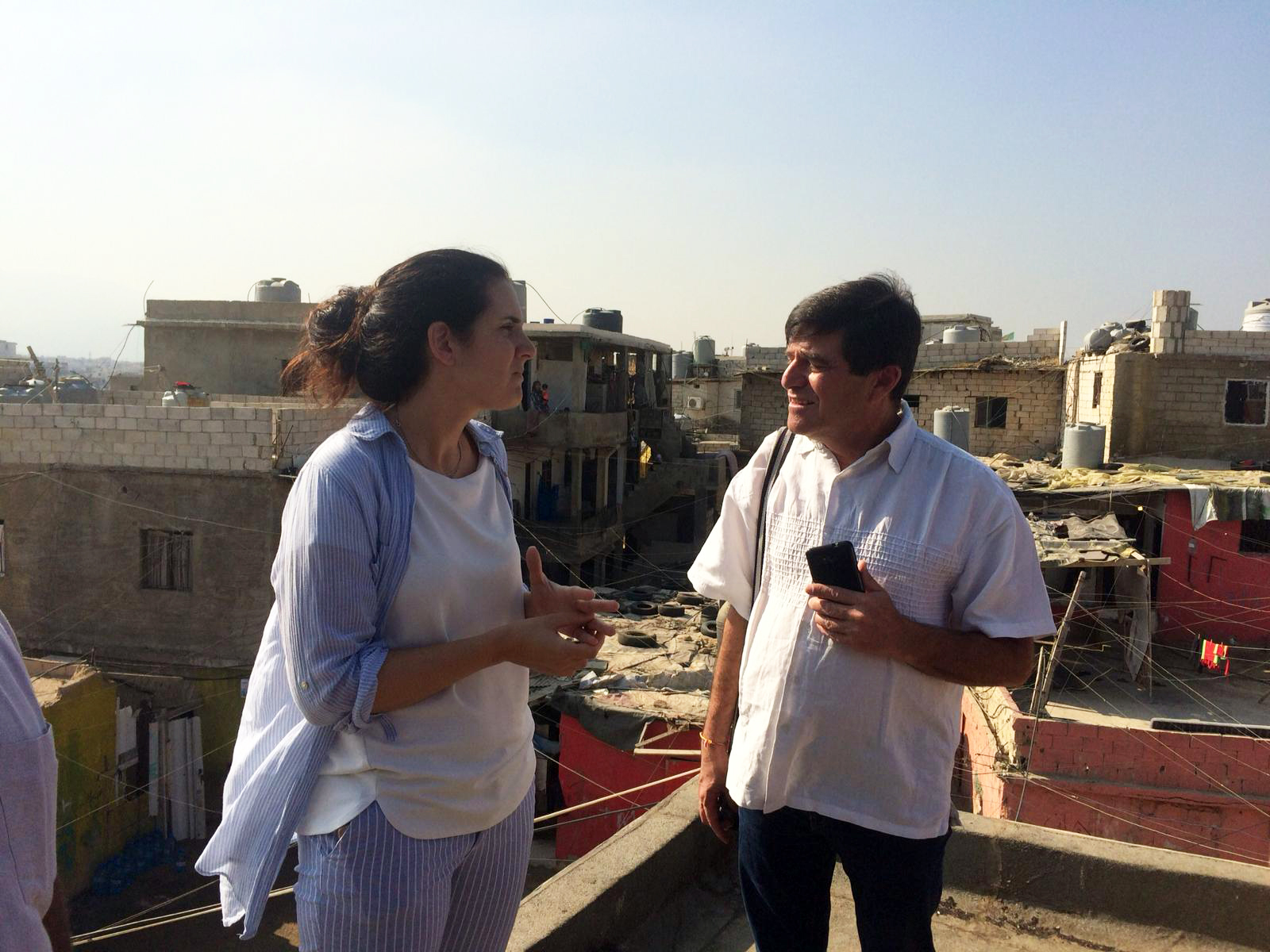
Above left, the community of Hay al-Gharbeh, a shantytown in Beirut where Tahaddi works with young refugees, migrants, and other marginalized populations. Right, Nadia Khouri of Tahaddi shares insights with Juan José Hurtado Paz y Paz from the Guatemalan organization Pop N’oj.
Plan for long-term peer learning.
While the group benefited from having the learning journey facilitated by Roger Ricafort, formerly of Oxfam Hong Kong, a veteran of organizational development with a track record that spans decades and geographies, the leaders also shared their own expertise with each other, identifying an interest in a future platform or other mechanism to share resources and materials to avoid duplication of efforts.
As the experience with the first cohort of the project informs the process for our second group, we will encourage a bridge to form between the leaders of both cohorts. All of the partners have expressed gratitude for having this extended space of learning beyond a typical one-time workshop to inform areas such as preparing a second level of leadership beyond the founder, expansion within and beyond communities, and being nimble in the face of political challenge.
Encourage relationships—don’t dictate them.
Trust-based relationships between leaders of organizations take time to develop and their collaborations emerge best organically. For example, Pop No’j was inspired by Arpan’s materials to educate children in India about preventing child sexual abuse and adapted and published the tools to reflect the indigenous communities in Guatemala where they work. In another example, Kenya’s RefuSHE leveraged their strong social media experience and advised Masoom in India on strategies to build successful crowdfunding projects with GlobalGiving.
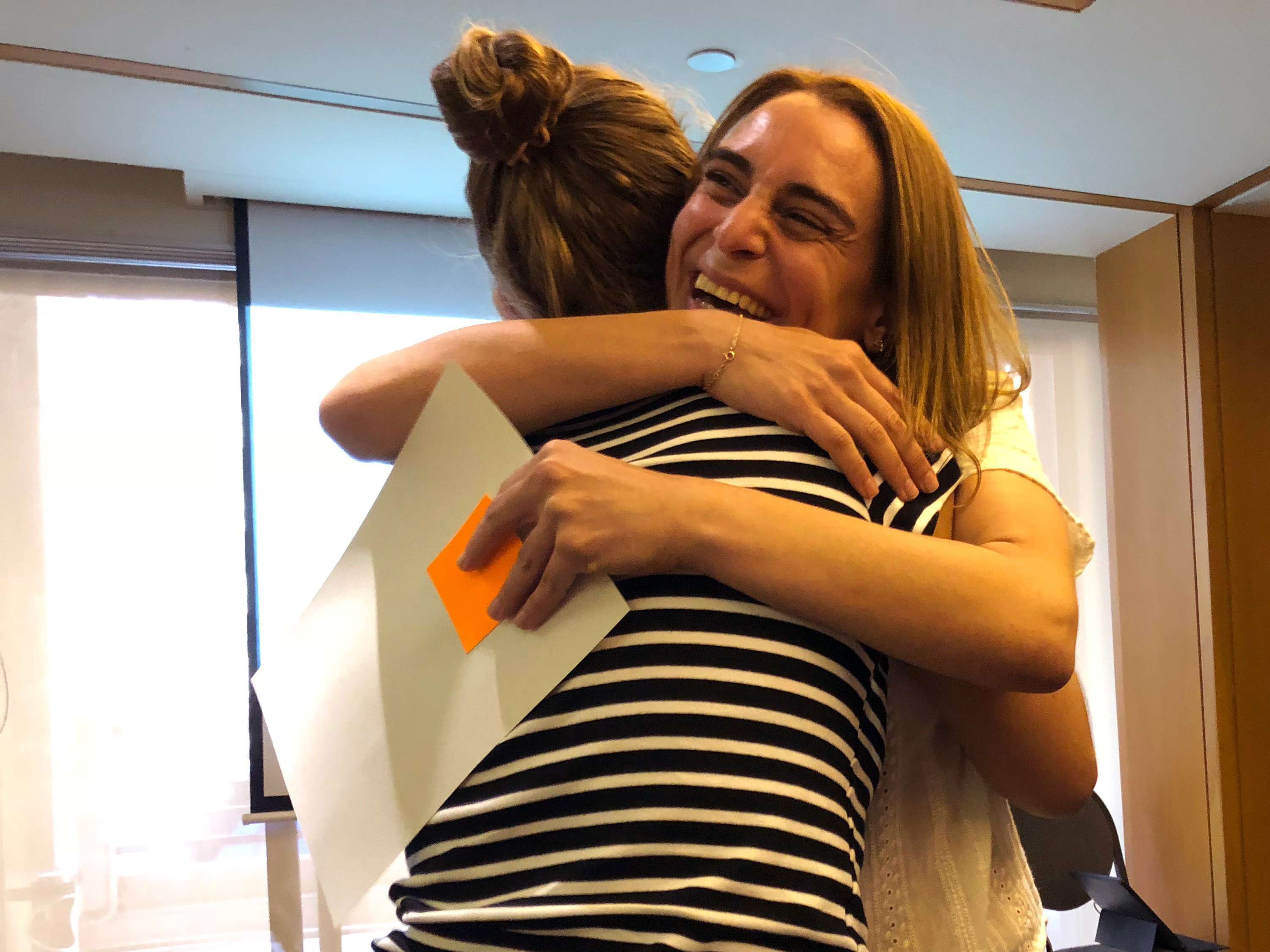
Above: Ghia Osseiran from Tahaddi embraces Azra Husejnovic from RefuSHE.
“Growth” cannot be universally defined.
Step Up is designed to help each participant define what growth and scale means to them and then map out a path forward. As we reflect on our partners’ individual journeys across the pilot, the multi-dimensional nature of scale and navigating complexity and change is profoundly apparent: :
Arpan no longer views “scale” as directly conducting training in as many schools as possible, but instead shares its model widely in and, recently, beyond India.
Masoom weathered a challenging policy environment surrounding the night schools it strengthens, and getting views from Step Up peers on the dynamics of this situation ultimately enabled them to emerge with a plan to expand to a new state and to explore unique financing models.
RefuSHE, previously known as Heshima Kenya, recognized its work with refugee girls in Kenya is increasingly embedded in regional dynamics and opted to rebrand to reflect its vision of international expansion.
Tahaddi implemented a new strategic plan and leveraged funding opportunities to open a new health center and expand psychological services in its community. Though the organization may never become international, it continues to deepen and strengthen its work with marginalized young people in Beirut.
Will these leaders sustain their relationships long term? In the years ahead, how well will they continue to navigate change in the challenging and dynamic environments in which they work? The answers to these questions remain to be seen. Yet the seeds have been planted. In the words of Rados Djurovic, Director of APC, “It was so inspiring and encouraging to realize that there are people sharing the same values and devotion facing similar challenges across the globe, and to feel peer support, understanding and enthusiasm.”
